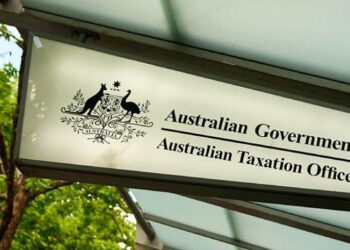The Securities and Exchange Commission (SEC) announced last week the approval for the listing and trading of several spot bitcoin exchange-traded product (ETP) shares.
This move is especially noteworthy considering the SEC’s historical trend of consistently denying approval for bitcoin ETF requests over the past decade, often citing concerns about market manipulation and investor protection.
In a statement explaining the rationale behind the SEC’s approval on Thursday, chair Gary Gensler said: “I have often said that the commission acts within the law and how the courts interpret the law.
“Beginning under chair Jay Clayton in 2018 and through March 2023, the commission disapproved more than 20 exchange rule filings for spot bitcoin ETPs. One of those filings, made by Grayscale, contemplated the conversion of the Grayscale Bitcoin Trust into an ETP.
“We are now faced with a new set of filings similar to those we have disapproved of in the past. Circumstances, however, have changed.
“The US Court of Appeals for the District of Columbia held that the commission failed to adequately explain its reasoning in disapproving the listing and trading of Grayscale’s proposed ETP (the Grayscale Order). The court therefore vacated the Grayscale Order and remanded the matter to the commission. Based on these circumstances and those discussed more fully in the approval order, I feel the most sustainable path forward is to approve the listing and trading of these spot bitcoin ETP shares.”
Mr Gensler, however, clarified that the approval does not signify a broader acceptance of cryptocurrencies by the regulator.
“While we approved the listing and trading of certain spot bitcoin ETP shares today, we did not approve or endorse bitcoin. Investors should remain cautious about the myriad risks associated with bitcoin and products whose value is tied to crypto.”
Grayscale, VanEck, and Fidelity are among the 11 funds authorised to issue securities tethered to the movements of the cryptocurrency.
A watershed day for bitcoin
The SEC’s decision received global applause last week.
Justin Arzadon, head of digital assets at Betashares, hailed it as a “watershed day for the maturity of bitcoin”, emphasising the potential confidence boost for the digital asset ecosystem and the prospect of deeper involvement by Wall Street in cryptocurrencies.
“While regulators in many countries have approved spot bitcoin ETFs, including Australia, none are bigger than the US. The SEC’s approval of spot bitcoin ETFs should add further confidence to the digital asset ecosystem and could pave the way for Wall Street to move deeper into cryptocurrencies as an asset class,” said Mr Arzadon in a statement.
He anticipates significant initial flows into US-traded spot bitcoin ETFs as a result of the approval and sees this as an endorsement of the global investor preference for ETFs.
Moreover, Mr Arzadon highlighted that despite traditional finance expressing interest in digital assets, mixed adoption, influenced by ongoing market volatility, is expected to find increased confidence and legitimacy with the SEC’s recent decision.
However, Mr Arzadon advises caution, reminding investors that digital assets remain highly volatile and should only constitute a small portion of an overall portfolio.
“Investors should generally look to build a diversified portfolio core around Australian and international equities as well as bonds,” he said.
“Depending on their circumstances, investors might then consider including a small allocation to digital assets within the alternatives component of their portfolio.”
Chief executive officer and co-founder of eToro, Yoni Assia, echoed the sentiment and agreed that the SEC’s announcement is a “watershed moment”.
“For 15 years, bitcoin has been growing in prominence as an asset class amongst retail investors, while in a reversal of traditional roles, institutional investors have remained largely on the sidelines waiting for traditional finance rails to be put in place,” said Mr Assia.
“Today’s news provides an answer for institutional demand for bitcoin. It’s good news for crypto markets and supportive of our belief that bitcoin is an unstoppable technology. It is digital gold and taking a long-term view, I believe that it represents the intersection of finance, economics and technology.”
Jonathon Miller, managing director of Kraken Australia, also celebrated the moment as a milestone for both bitcoin and cryptocurrencies more generally.
“An ETF makes bitcoin accessible to a much broader range of investors and signifies tacit acknowledgement that the crypto asset class is here to stay.”
In the Asia-Pacific region, Global X was the first provider to launch spot bitcoin and Ethereum ETFs. The Global X 21Shares Bitcoin ETF (Cboe: EBTC) and Global X 21Shares Ethereum ETF (Cboe: EETH) remain the only spot cryptocurrency ETFs in Australia.
Commenting on these latest developments, Evan Metcalf, chief executive of Global X ETFs in Australia, said: “It is encouraging to witness a growing recognition of digital assets as a legitimate investment class, and we anticipate heightened demand for this type of exposure from investors, particularly here in Australia. The notable rallies of bitcoin and Ethereum this year further underscore this growth potential.”
SMSF warning
“Crypto exchanges are not like a bank, they are still basically unregulated,” Mr Yew said.
Mr Yew was responding to the government’s announcement that it intends to enact a financial services licensing regime for digital currency exchanges, stablecoin operators, and digital asset custody services.
At the time he cautioned SMSFs wishing to explore crypto as an investment option to investigate if the structure they chose to invest in meets compliance requirements.
“The issue today is that crypto exchanges are strong on marketing and pushing the appearance they are heavily regulated when they are not,” he said.
“A lot of work has been done to create the illusion that the SMSF has control of the asset on crypto platforms but none of these things are related to the legal obligations of an SMSF to hold legal title to the asset.
“Just because it looks regulated doesn’t mean it is.”


